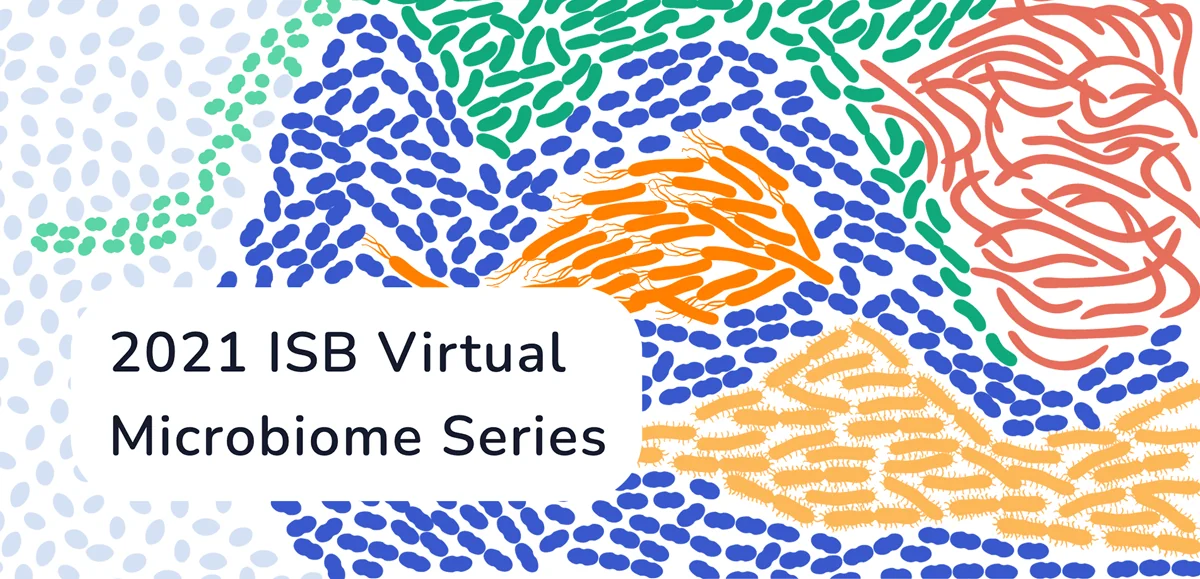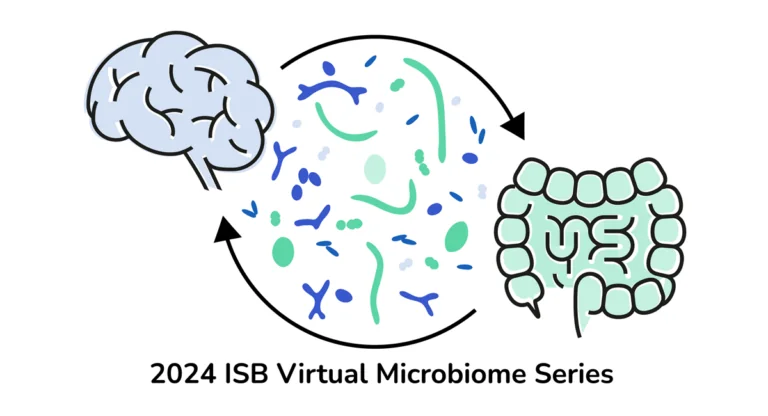2021 ISB Virtual Microbiome Series
The 2021 ISB Virtual Microbiome Series highlighted recent advances toward understanding general patterns of commensal population genomic variation within the human gut, how fine-scale commensal genomic variation is influenced by host phenotypic variation, and whether or not commensal genomic variation has an impact on human health and disease.

We hosted the 2021 ISB Virtual Microbiome Series consisting of a two-day virtual course and a one-day symposium examining the latest cutting-edge microbiome research.
This was the second microbiome series of its kind and was geared toward graduate students, postdocs, principal investigators, industry scientists, educators, clinicians, or any other variety of microbiome-curious people from across the globe.
The event was recorded. You can watch the full playlist on YouTube, or scroll down to see the full collection of videos.
Series background
We are island ecosystems, rapidly colonized at birth by a diverse array of microorganisms. Many of these commensal microbial populations persist in and on our bodies for years, decades, perhaps as long as a century. For our microbes, these human timescales are equivalent to tens of thousands of generations, which is equivalent to hundreds of thousands or even millions of years of evolution in a vertebrate such as ourselves. While we are beginning to understand how disruptions to the ecological structure of commensal microbial communities can impact host health, less is known about how rapid evolutionary dynamics within individual commensal populations throughout a host’s lifespan can influence ecosystem function.
ISB hosted a series of events in October of 2021 that highlighted recent advances toward understanding general patterns of commensal population genomic variation within the human gut, how fine-scale commensal genomic variation is influenced by host phenotypic variation, and whether or not commensal genomic variation has an impact on human health and disease.
Virtual Microbiome Course – Day 1
Virtual Microbiome Course – Day 2
Virtual Microbiome Symposium
Session 1 (Theory): Population genomics of commensal bacteria
Session 2 (Natural History): Identifying signatures of within-host adaptation
Session 3 (Clinical Relevance): Functional consequences of evolution in host-microbe systems


